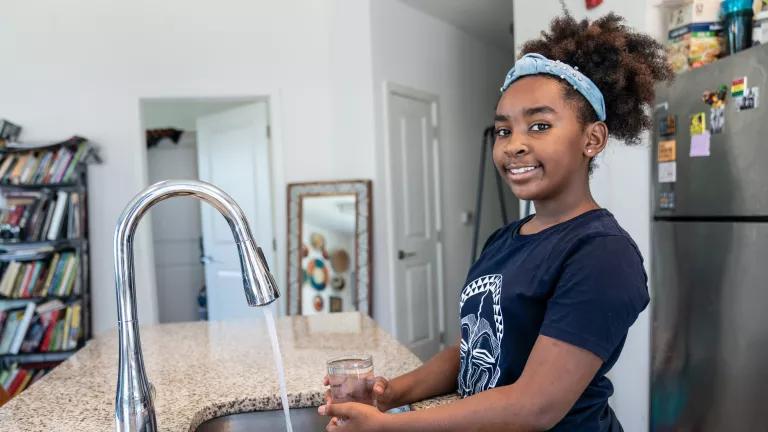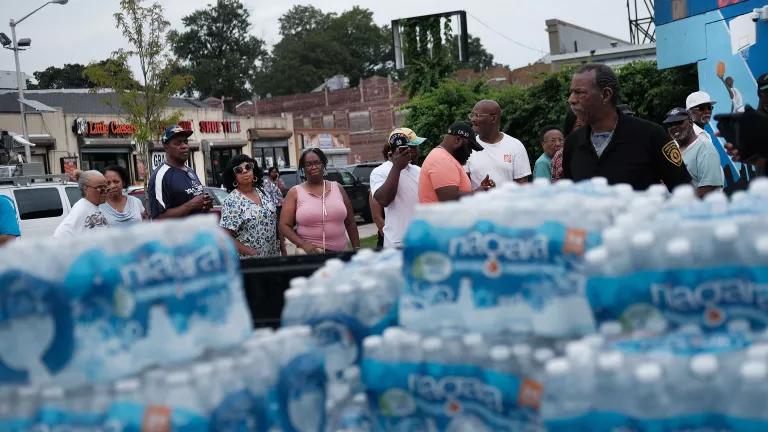Senate Passes Bill to Advance Safe, Affordable Water for All
The Drinking Water and Wastewater Infrastructure Act of 2021 takes important steps towards providing everyone in this country with access to clean, safe, and affordable water.

Today the Senate approved, by an overwhelming bipartisan vote of 89-2, the Drinking Water and Wastewater Infrastructure Act of 2021 (S.914, or DWWIA). The bill takes important steps towards providing everyone in this country with access to clean, safe, and affordable water. It authorizes increased funding for new and existing drinking water, wastewater, and stormwater programs that will help to provide critical resources to communities across the country. While much more needs to be done, including acting upon President Biden’s ambitious proposals for addressing our water infrastructure problems, the bill approved today makes important contributions to the tremendous task of fixing our failing infrastructure.
The strong vote approving the bill documents the broad bipartisan support for investing in our aging and increasingly decrepit water infrastructure. The bill authorizes funds for replacing lead service lines, reauthorizes the Drinking Water and Clean Water State Revolving Funds, starts a pilot program at EPA for low-income water assistance, and authorizes funding for rural and disadvantaged communities, among other measures. We will be looking for continued bipartisan support for water infrastructure and for significantly increased appropriated investments in this important priority in future legislation.
While the current bill represents progress, the task ahead cannot be overstated. Sustained effort will be needed to ensure that everyone, especially low-income communities and communities of color who have historically borne the brunt of pollution and failing water infrastructure, has access to clean water for drinking, fishing, and recreation. As the bill advances, we are committed to working with Congressional leaders and the Biden-Harris Administration on key issues including ensuring that the legislation establishes a permanent national low-income water assistance program as a step toward more comprehensive water affordability solutions.
There also is an urgent need for dramatically increasing overall funding to meet the estimated $750 billion to $1 trillion or more in nationwide need and directing more of it to disadvantaged communities in the form of grants. In addition, the lead service line replacement and school lead programs must be strengthened and expanded, transparent water loss auditing and reporting is needed, substantially more investment is required in green and natural infrastructure, and other key issues still must be addressed. These enhancements would have huge benefits for communities—not only supporting public health and a clean environment but also generating much-needed economic activity and creating hundreds of thousands of jobs.




